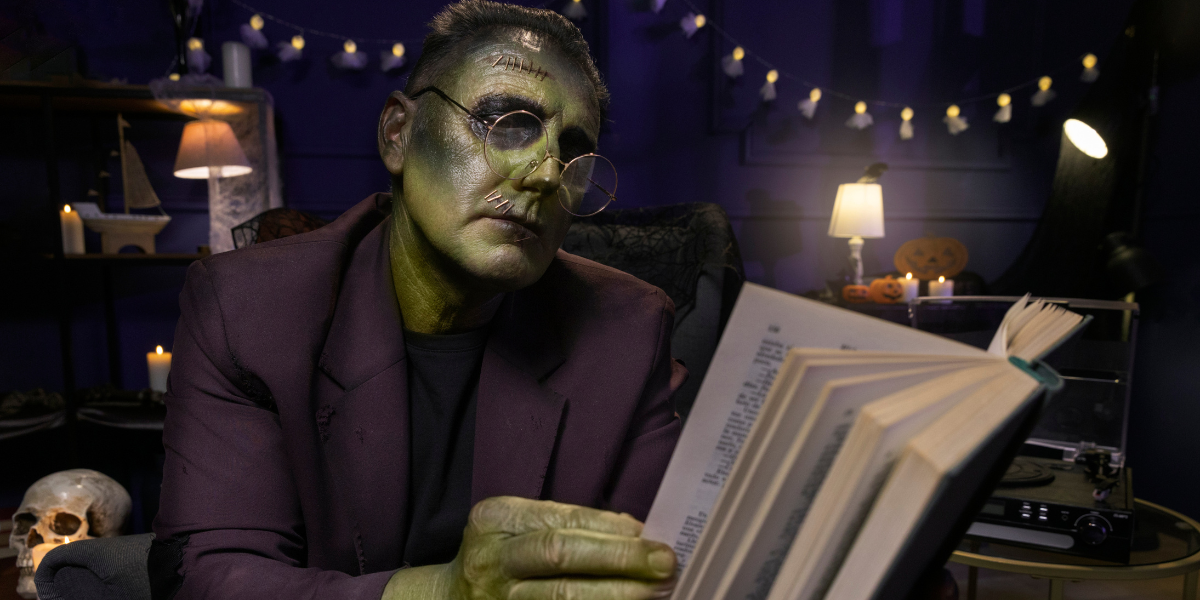

 The Evolution of Horror Literature : A Journey Through Fear
The Evolution of Horror Literature : A Journey Through FearHorror literature has a rich and diverse history, with its roots stretching deep into the human psyche. From the ghost stories of ancient civilizations to the chilling psychological narratives of today, the genre has evolved with society, reflecting its deepest fears and anxieties. This article will explore the journey of horror literature, unveiling the uncanny evolution of this genre that continues to captivate and terrify us.
Horror’s beginnings can be traced back to ancient folklore filled with demons, ghosts, and other supernatural entities. In many cultures, these stories served as cautionary tales or explanations for unexplainable phenomena. However, it was not until the Gothic literature boom in the late 18th and early 19th centuries that horror began to truly take shape. Influential writers like Edgar Allan Poe and Mary Shelley introduced new narratives that explored the macabre and the supernatural, bringing horror to the mainstream.
The Victorian era, often dubbed the ‘Golden Age of Ghost Stories’, saw an increase in the popularity of supernatural tales. The rise of periodicals allowed for the widespread distribution of short horror stories. Renowned authors such as M.R. James and Henry James were instrumental during this era, creating suspenseful stories filled with spectral apparitions and eerie phenomena.
The 20th century brought a significant shift to horror literature. Instead of relying solely on supernatural elements, writers began to explore the terrors of the human mind and the dread of existence. Authors like H.P. Lovecraft introduced cosmic horror, where the true horror came not from monsters, but from the vast, unknowable universe. Other writers, like Shirley Jackson and Richard Matheson, turned inward, crafting narratives that highlighted the psychological aspects of horror.
Modern horror literature has evolved to reflect societal fears and issues, often serving as a form of social commentary. This era has seen an increase in diversity within the genre, with authors from different backgrounds bringing fresh perspectives and narratives. Authors like Stephen King, who is often credited for popularizing horror in the late 20th century, use horror as a way to explore societal issues. Contemporary authors, such as Carmen Maria Machado and Victor LaValle, continue this trend, bringing in elements of gender, race, and identity into their stories.
With the advent of digital media, horror literature has new avenues to explore and terrify its audience. From interactive narratives to online horror communities, the genre continues to adapt and evolve. As society changes, so too does its fears, and with that, the future of horror literature looks as promising as it is chilling.
Throughout its evolution, horror literature has remained a significant part of our culture. Its ability to adapt and reflect societal fears has kept the genre relevant and compelling. From the haunted castles of Gothic literature to the internalized terror of modern narratives, horror continues to capture our darkest fears and deepest anxieties. As we move into the future,we can only imagine the new forms horror literature might take as it continues to mirror our evolving anxieties and fears. However, one thing remains certain: whether through ghostly apparitions, cosmic dread, or the terror of the human psyche, horror literature will continue to draw readers into its eerie grasp, forcing us to confront the monstrous both outside and within us.
As horror fans, we eagerly anticipate the spine-chilling tales yet to be told, the new voices yet to be heard, and the innovative narratives yet to unfold. The evolution of horror literature is a testament to the genre’s enduring appeal and its fascinating ability to metamorphose alongside the society it haunts. It is a genre that compels us to confront our deepest fears, reflect on our existence, and navigate the terrifying landscape of the human condition.
The evolution of horror literature is far from over. It remains an exciting, dynamic genre constantly shifting to embody our collective nightmares. With its uncanny ability to tap into the darkest corners of our imagination, horror literature will continue to captivate, terrify, and intrigue us for generations to come.
After all, as the renowned horror writer H.P. Lovecraft once said, “The oldest and strongest emotion of mankind is fear, and the oldest and strongest kind of fear is fear of the unknown.” As long as there is an unknown, there will be horror literature, constantly evolving, forever reminding us of the exhilarating thrill of fear.
Reference
Image by <a href=”https://www.freepik.com/free-photo/front-view-frankenstein-readingindoors_31124167.htm#query=horror%20literature&position=0&from_view=search&track=ais”>Freepik</a>
Join thousands of readers getting free daily emails with the hottest new releases, limited-time promos, and hidden gems – before anyone else.
It's 100% free. No spam, just great books delivered daily.
Thanks for joining our newsletter! Want to dive even deeper into the world of books you love? Create a free CraveBooks reader account and unlock exclusive perks:
Connect directly with your favorite authors and discover new ones.
Be the first to know about new releases and exciting updates.
Share your thoughts and chat about books with a passionate community.
Get notified about special book updates, participate in giveaways where you can get fun items & books, and download free books – all without spending a dime!
It's the perfect way to enrich your reading journey and discover your next obsession. Join our community of avid readers today!
